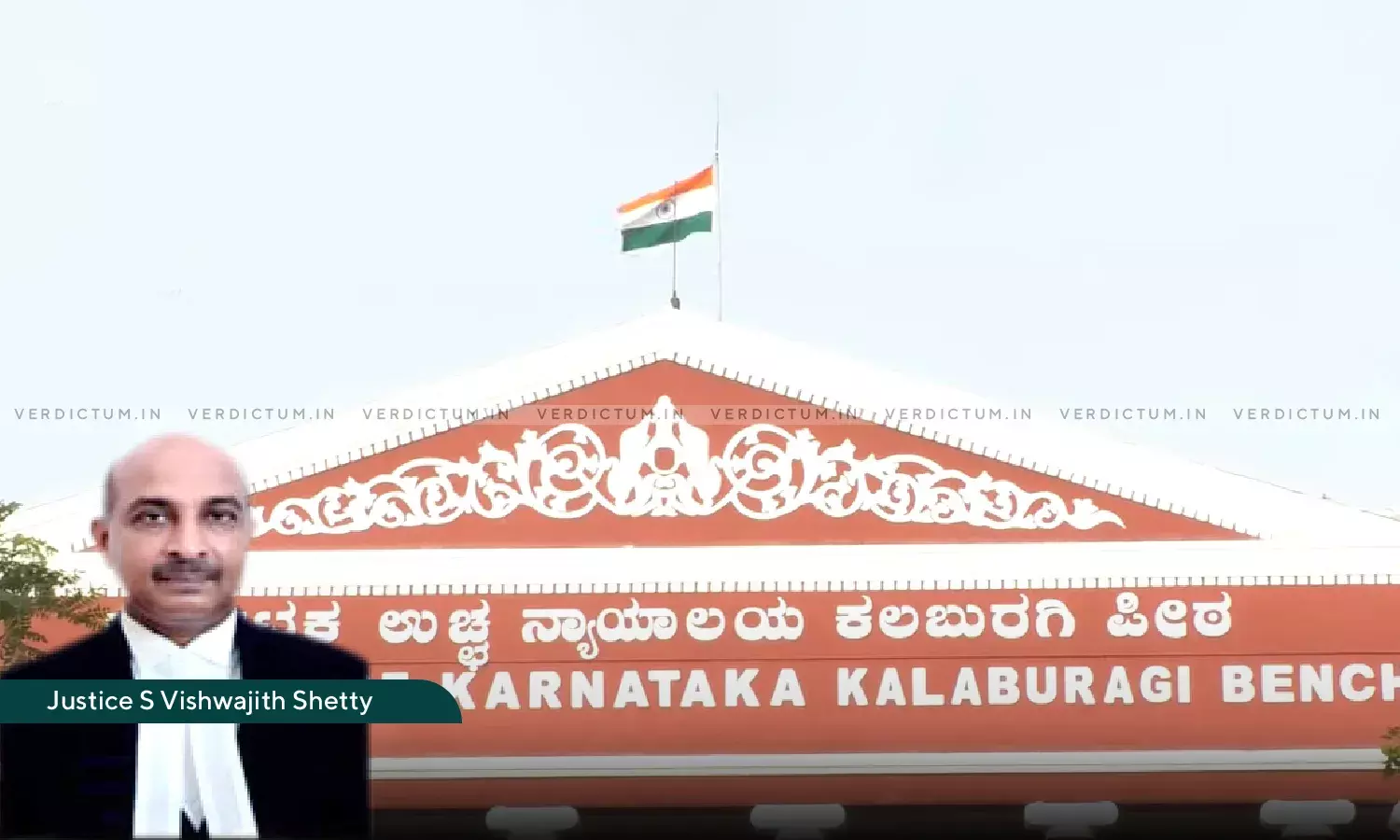Merely Because Samples Were Drawn In Presence Of Gazetted Officer, It's Not Sufficient For Compliance Of S. 52A(2) NDPS Act: Karnataka HC
The Karnataka High Court observed that mere fact that the samples were drawn in the presence of a gazetted officer is not sufficient for compliance of Section 52A(2) of the Narcotic Drugs and Psychotropic Substances Act, 1985 (NDPS Act).
The Kalaburagi Bench observed thus in a batch of two criminal appeals preferred against the judgment and order of conviction of two men.
A Single Bench of Justice S. Vishwajith Shetty held, “Mere fact that the samples were drawn in the presence of a gazetted officer is not sufficient for compliance of the mandate of Sub Section (2) of Section 52A of the NDPS Act. In the case on hand, the mandatory requirement of Section 52A is not at all complied and therefore, the photograph – Ex.P3, samples drawn in the presence of gazetted officer under panchanama – Ex.P2 and the FSL report obtained as per Ex.P10 cannot be considered as primary evidence and in the absence of primary evidence, the trial gets vitiated.”
Advocates Santosh Kumar B. Metri and B.C. Jaka appeared on behalf of the appellants/accused while HCGP Veeranagouda Malipatil appeared on behalf of the respondent/State.
Brief Facts -
As per the prosecution case, the appellants/accused were found illegally transporting the contraband article ‘Ganja’ which in total weighed 30 kgs. The appellants were apprehended and from their possession, Ganja was seized and subjected to panchanama. Thereafter, the seized contraband article and the apprehended accused were brought to the police station and an FIR was registered. After investigation, charge-sheet was filed against them for the offences punishable under Sections 20(b)(ii), 20(B) and 20(C) of the NDPS Act.
The Trial Court took cognizance of the case and after hearing the arguments from both sides, convicted the appellants under the aforesaid provisions. They were sentenced to undergo rigorous imprisonment for a period of 10 years and pay a fine of Rs. 20,000/- each. Being aggrieved by their conviction and sentence, the appellants were before the High Court.
The High Court in view of the above facts said, “Section 52(A) of the NDPS Act deals with seizure of contraband article, forwarding the seized contraband article and obtaining certification from the relevant Magistrate. Section 52(A) of the NDPS Act considers that the certified inventory of seized substance along with any list of seized samples as primary evidence in the trial.”
The Court further noted that whenever a contraband article is seized, the officer referred to in Section 53(1) of NDPS Act, shall prepare the inventory of the seized contraband articles in detail and the description of the seized contraband article, mode of packing, identify marks and quantity in each pack shall be mentioned and thereafter an application shall be filed to the jurisdictional Magistrate for the purpose of certifying the correctness of the inventory and also for allowing to draw samples of the contraband article in the presence of the Magistrate for forwarding the same to the Forensic Science Laboratory for chemical examination.
“In the present case, the samples from the seized contraband article was drawn by PW.6 in the presence of PW.1, who is a Gazetted Officer. No sample of the contraband article has been drawn in the present case in the presence of the Magistrate. The material on record also go to show that after seizure of the contraband article and before the sample of the contraband article was forwarded by the Investigating Officer to the forensic science laboratory for chemical examination, the jurisdictional Magistrate has not certified inventory of the contraband article or the sample, which was drawn by PW.6 at the time of preparing seizure panchanama – Ex.P2 in front of PW.1, who is a Gazetted Officer”, it added.
The Court elucidated that Section 52(A)(2) is introduced in the statute with an object to give some sanctity for the seizure made and also to prevent any mischief at the hands of the police officers or any other officer investigating the cases under the provisions of the NDPS Act. It said that the punishment for the offences under the provisions of the NDPS Act depends upon the quantity of the contraband article seized and therefore, to rule out any foul play during the investigation, necessity of preparing the inventory and getting the same certified by the jurisdictional Magistrate within a reasonable time and drawing of sample from the seized contraband article becomes mandatory.
“Even in the case on hand, there is no compliance of the requirement of Sub Sections (2) and (3) of Section 52(A) of the NDPS Act and therefore, it is apparent that the seized contraband article and the samples drawn from the same would not be valid piece of primary evidence and therefore, no reliance can be placed either on Ex.P2 – seizure mahazar, Ex.P3 – photograph and Ex.P11 – report of the FSL”, it concluded.
Accordingly, the High Court allowed the appeals, set aside the impugned judgment, and acquitted the appellants.
Cause Title- Sharukh v. State of Karnataka (Neutral Citation: 2024:KHC-K:4643)




